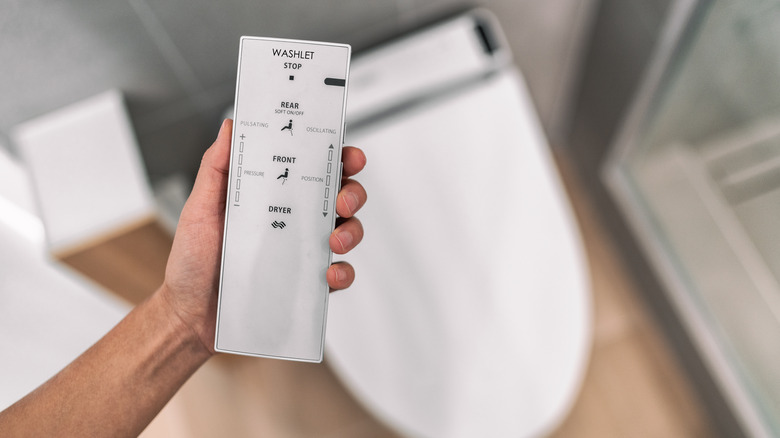Are Bidets Sanitary?
They may still be gaining traction in America, but bidets have been staple fixtures in many washrooms throughout Europe and Asia for years. In some households, they entirely take the place of toilet paper, while in others, they simply reduce its use by cleaning off most of the mess with a stream of water. This might sound uncomfortable to some, but to others it seems like the height of hygiene. After all, the less time you spend touching your butt, the better. Right?
Science, as it turns out, isn't sure if that's true. To paraphrase Dr. John Swartzberg, M.D., from his interview with The New York Times' Wirecutter, there simply aren't any studies comparing the use of toilet paper to the use of a bidet. In fact there are few studies on the bidet at all. Of the few studies that do exist, most have been done in the last decade or so, and they highlight some concerns around bidet use. But even these, Dr. Swartzberg says, are not as clear cut as they seem.
The science is sparse
One study carried out in 2010 and published in The Journal of Obstetrics and Gynaecology Research found that bidets pose specific issues for people with vaginas. As the study explains, vaginas are self-cleaning, with specific balances of pH and healthy bacteria that prevent infection. Regular bidet use seems to disrupt this natural balance.
42.86 percent of regular bidet users lacked "regular microflora" compared to 8.77 percent of non-users with the same issue. This sounds concerning, but as Dr. Swartzberg pointed out after reviewing the study for Wirecutter, the researchers don't detail how abnormal a the bidet users' vaginal microflora was or what effect if any this had on their health.
Another study — one Dr. Swartzberg did not review — was conducted in 2017. Researchers tested the toilet seats and water nozzles of toilets in a Japanese university-affiliated hospital. Their results, published in The Journal of Hospital Infection, found that almost 87 percent of the bidets contained one or more strains of harmful bacteria. Some of the strains included staphylococcus aureus and streptococcus.
The study was focused on the effects of bidets in hospitals, not in the homes. And while it is likely that home bidets also contain unsavory bacteria, the specific strains may be less concerning. But as Dr. Swartzberg said, there just hasn't been enough research done to know for certain. For now the best scientists can say is that they are about as hygienic as toilet paper.

